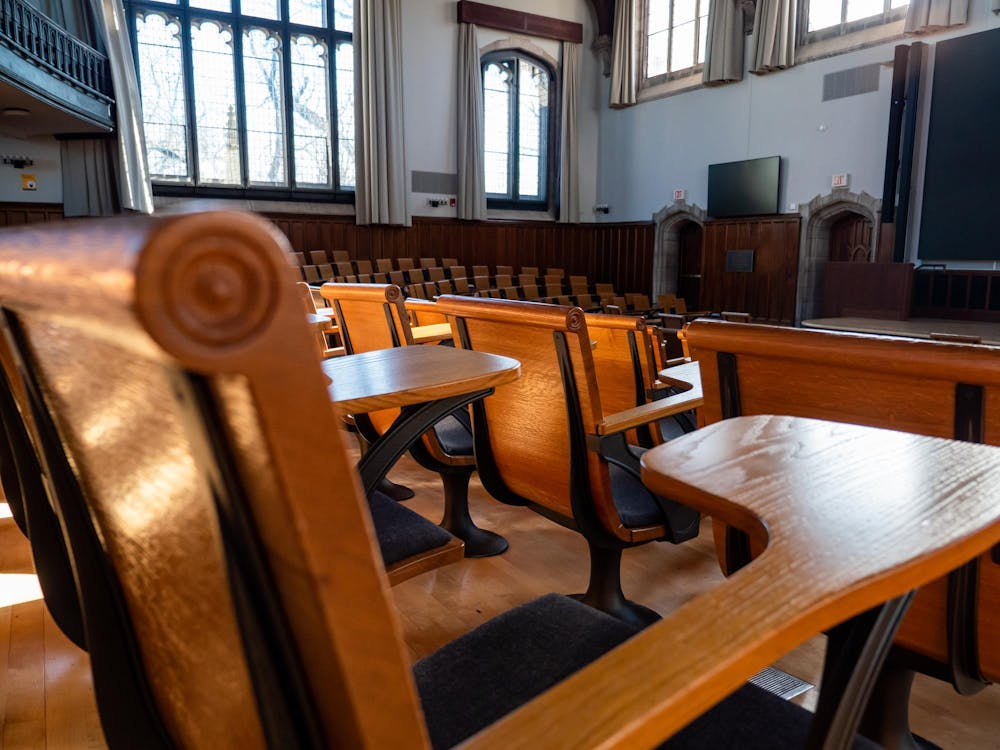Occasionally an issue surfaces that provides insight into how a country wants to see itself. Mandatory sentencing is that hot issue right now in Australia.
Shortly before I arrived in Melbourne, a 15-year-old Aboriginal boy in the Northern Territory was sentenced to 28 days in jail for stealing a few dollars worth of goods. It was the boy's second offense. Under Northern Territory Law, second-time juvenile offenders must be detained for a month. The judge said he had no choice. The boy was sent 800 kilometers away from his home to a juvenile detention center in Darwin. He hanged himself in his jail cell shortly thereafter.
His death was front-page news. It stirred up emotions about most of Australia's hot button issues — federalism, the split between the cities and the underpopulated outback, Australia's treatment of Aboriginal people and human rights in the juvenile justice system.
Australia's debate over federalism has raged since the Founding Fathers wrote the Constitution. Most power rests in the Commonwealth Parliament (in Canberra), but the Commonwealth is composed of several states and territories. These are independent governing bodies, like American states. They are responsible for their own justice systems. Citing a spate of property crimes and general lawlessness, the state of Western Australia and the territorial government of the Northern Territory enacted mandatory sentencing laws in the mid-1990s. In addition to mandatory penalties for juveniles, adults convicted of three thefts or property crimes must serve a year in jail.
To Americans, these penalties don't sound particularly harsh. In California, offenders are locked up for life after three violent felonies. But in Australia, the court system leans less toward retribution on behalf of the victim and more toward attempted rehabilitation of the criminal. People in the eastern cities were outraged over these penalties. The Australian Labour Party promotes the abolition of federalism, precisely so states cannot pass non-progressive measures such as these. The governments of the western states responded that those in the eastern cities simply don't understand what outback life is like. Shortly after the boy's death, a senator in Canberra introduced legislation to overturn mandatory sentencing laws. If it passes, and if the courts allow such a law to stand, the system of federalism will be all but gone in Australia.
The other major issue is Aboriginal rights and treatment. The boy was an Aborigine, as are 73 percent of Northern Territory inmates (Aborigines represent 27 percent of the territory's population). He was sent 800 kilometers away from his small Aboriginal clan for a petty theft matter that could have been handled by local leaders. In theory, mandatory sentencing evens out justice, preventing racist judges from sentencing whites to far less severe penalties than Aborigines. In reality, certain offenses are more likely to incur penalties than others. White collar crimes draw fines. Lower income crimes (theft and vandalism) draw sentences.
The boy's death opened the usual Aboriginal rifts. As one Melbourne University professor, part indigenous himself, said, "With all the white people have stolen from Aborigines, he should have taken a lot more than what he did." John Howard, the Liberal Party Prime Minister (the Liberal Party is the more conservative party in Australia) was working on a Reconciliation Day declaration, which would apologize to Australia's original inhabitants for crimes committed against them. He later postponed the Reconciliation, though, saying apologies were one thing, but improved services to the Aboriginal community were more important. Some Aborigines felt betrayed by this.
Meanwhile, many rural Australians are growing frustrated with both crime and ongoing problems within the Aboriginal community. Decades of welfare payments have done little to raise Aboriginal economic status. Affirmative action programs exist, but they are as controversial in Australia as in America.

Finally, mandatory sentencing raises issues of human rights. Australia signed the United Nation's Rights of the Child declaration, which permits juvenile imprisonment only as a last resort. Also, the punishment may not fit the crime. In the Northern Territory, a man received a year for stealing a can of biscuits (cookies) from a mining company. A boy who broke a window received a jail sentence. There are few opportunities for judicial discretion.
Both sides of the controversy have good points. Crime should be punished. But should children be locked up for relatively minor mischief? I'm inclined to agree that politicians thousands of miles away in Canberra (much like Washington) should not be deciding local issues. But certainly after so much negative publicity, the people of the Northern Territory will look into tempering their laws with reason. Laura Vanderkam is a Wilson School major from Granger, Ind. She is currently studying abroad in Australia and can be reached at laurav@princeton.edu.








